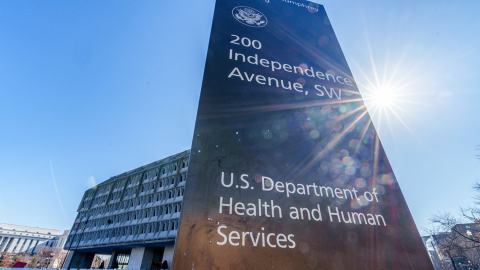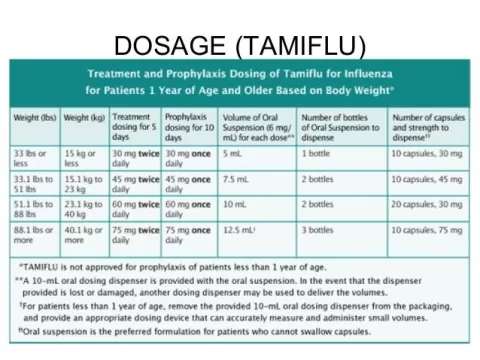Childhood vaccines play a critical role in protecting the health and wellbeing of children from various infectious diseases. Despite the proven effectiveness of immunizations, recent surveys reveal that only 35% to 40% of US pregnant women and parents plan to fully adhere to recommended vaccination schedules for their children. This vaccine refusal trend raises significant concerns regarding vaccination rates and the overall safety of infants in the community. The Centers for Disease Control and Prevention (CDC) have emphasized the importance of vaccinations, not only for the children themselves but also for pregnant women, to ensure a healthier start in life. Engaging parents through education and support, especially during pregnancy, may enhance understanding and boost childhood immunization rates in the long term.
Childhood immunizations, often referred to as early-life vaccines, are essential for safeguarding young children from preventable diseases. Many parents and caregivers face challenges in making informed decisions about these vaccinations, and trends show a worrying inclination towards delaying or entirely refusing immunization. Understanding the nuances of vaccine acceptance and the critical need for pregnant women to receive proper education on vaccinations can lead to improved outcomes for future generations. The dialogue surrounding prenatal immunizations and effective healthcare strategies can empower families to prioritize their children’s health and wellbeing. Overall, fostering a supportive environment for vaccination discussions is vital in enhancing public health adherence.
Understanding the Importance of Childhood Vaccines
Childhood vaccines play a critical role in protecting young children from various infectious diseases. Vaccination not only safeguards individual health but also contributes to the overall immunity of the community, preventing outbreaks of diseases that can be harmful to vulnerable populations, such as infants and pregnant women. The Centers for Disease Control and Prevention (CDC) emphasizes the importance of following recommended childhood immunization schedules to maintain high vaccination rates and ensure that herd immunity is achieved. This collective protection helps in reducing the transmission of contagious diseases and ultimately protects those who are unable to be vaccinated due to medical reasons.
Despite the clear benefits of childhood vaccines, many parents are hesitant or refuse vaccinations for their children. This vaccine refusal can affect public health, as lower vaccination rates leave communities vulnerable to preventable diseases. Research indicates that engaging parents through education about the benefits and safety of vaccines is essential. The uncertainty about vaccination in pregnant women and new parents highlights the need for healthcare professionals to intervene early and guide families in making informed decisions regarding childhood vaccinations.
The Challenges of Vaccine Refusal Among Parents
Vaccine refusal is a growing concern among parents, with significant percentages choosing not to fully vaccinate their children. This trend is particularly evident during the first pregnancy, where uncertainty about vaccinations is notably high. It has been shown that 33% of parents indicate plans to refuse some or all vaccines for their children. This refusal not only endangers the health of their children but also raises risks for the community at large. Addressing this issue requires a deeper understanding of the reasons behind vaccine hesitancy, including misinformation, fears about safety, and distrust in the healthcare system.
To combat vaccine refusal, healthcare providers must engage parents with accurate information and emphasize the significant protective benefits of childhood vaccinations. Providing educational resources during prenatal visits can help address concerns while building trust in the healthcare system. Furthermore, continuous support and information dissemination may assist in improving vaccination rates and ensuring that children receive the necessary vaccines for healthy development.
The Role of Prenatal Care in Promoting Vaccination
Prenatal care presents an essential opportunity to influence parents’ decisions regarding childhood vaccinations. Engaging expectant mothers during their pregnancy can help create a more supportive environment for discussing vaccine recommendations and addressing any concerns about vaccine safety. The CDC recognizes the importance of including discussions about vaccination in prenatal care, highlighting how proactive communication can positively affect vaccination decisions post-birth. By reinforcing the health benefits of vaccines during pregnancy, healthcare providers can empower parents to prioritize vaccination for their children.
Moreover, integrating vaccination education into prenatal classes or maternal health programs could enhance parents’ understanding and acceptance of childhood immunizations. When pregnant women feel informed and supported about vaccines, they are more likely to advocate for their children’s vaccinations once they are born. The healthcare community must commit to this proactive approach and make it a standard practice to address vaccination discussions throughout pregnancy.
Vaccination Rates and Their Impact on Public Health
High vaccination rates are crucial for achieving herd immunity and preventing outbreaks of vaccine-preventable diseases. In the United States, the disparity in vaccination rates among different demographics, such as education and urban versus rural living, provides insight into how to effectively target vaccine promotion efforts. Recent studies show that only 35% to 40% of pregnant women and parents intend to fully vaccinate their children, which is alarmingly low and poses a risk to overall public health.
As vaccination rates decline, the risk of diseases such as measles and whooping cough increases, creating a pressing need for community engagement and public health initiatives. Strategies to enhance vaccination rates could include outreach programs that specifically address the concerns of hesitant parents, educational campaigns highlighting the importance of childhood immunizations, and collaborations with community leaders to foster a more vaccine-positive environment.
Addressing Misinformation About Vaccines
Misinformation surrounding vaccines significantly contributes to vaccine hesitancy and refusal. Many parents are exposed to misleading information through social media and unverified sources, leading them to question the safety and necessity of childhood vaccines. This underscores the urgency for healthcare professionals to counteract misinformation proactively and provide clear, evidence-based information about vaccinations.
Healthcare providers can enhance public confidence in vaccinations by sharing reliable data about vaccine efficacy and safety. It is essential to consider the concerns of parents, engage in open discussions, and provide testimonials from trusted community figures. By addressing myths and misconceptions directly, healthcare professionals can play a pivotal role in shaping public perceptions of childhood vaccines and improving overall vaccination rates.
The Importance of Vaccination During Pregnancy
Vaccinating pregnant women is an integral part of prenatal care, as it provides immunity not only to the mother but also to the unborn child. Vaccines such as the flu vaccine and Tdap vaccine are recommended during pregnancy to protect both mother and baby from serious complications. Recent research has highlighted the need for increased awareness among pregnant women regarding their vaccination options and the associated benefits, emphasizing the importance of vaccinations during this critical period.
Moreover, educating pregnant women about the safety and effectiveness of vaccinations can influence their future choices about childhood vaccines for their babies. The healthcare system should prioritize maternity care that includes comprehensive discussions about the importance of vaccinations, addressing any concerns early in the pregnancy to ensure that mothers are well-informed and prepared for their child’s vaccination schedule post-birth.
Navigating Surgical Recovery with Vaccinations
After surgical procedures, patients may wonder about the timing and necessity of vaccinations during their recovery. Vaccinations are often a topic of concern, as some individuals believe they should delay immunizations until fully healed from surgery. However, healthcare experts advise that certain vaccinations, such as the flu and COVID-19 vaccines, can be administered during the recovery phase to provide immediate protection.
Engaging patients in discussions about their vaccination schedules post-surgery can help underscore the importance of staying on track with immunizations. This demographic may benefit from additional education about how vaccinations work and the safety of administering them in conjunction with post-operative care protocols. Clear communication with healthcare providers will ensure ongoing protection against preventable diseases.
Long-term Goals for Improving Vaccine Uptake
To improve vaccine uptake among parents and pregnant women, long-term strategies must be established that prioritize education, accessibility, and supportive healthcare environments. Public health organizations, including the CDC, should work with communities to create localized campaigns that target specific demographics and address their unique concerns about vaccines. These efforts can lead to a gradual shift in public perception regarding childhood vaccinations and foster a culture of health consciousness.
In addition, continuous monitoring of vaccination rates and targeted interventions based on trends in vaccine hesitancy will be crucial. Research into the effectiveness of ongoing vaccination education and outreach programs can provide valuable insights into how best to intervene with parents at key decision-making moments surrounding childhood immunizations. Such efforts can ultimately lead to sustained improvements in vaccination rates and healthier communities.
Empowering Parents to Make Informed Vaccine Choices
Empowering parents with accurate information about childhood vaccines is essential to combat vaccine hesitancy. Providing clear, science-based resources about the risks and benefits of vaccinations can help parents understand the necessity of timely immunizations for their children. Support networks, including pediatricians and healthcare providers, play a central role in guiding parents through their concerns and helping them feel confident in their choices regarding their child’s health.
Furthermore, creating community initiatives that facilitate discussions and educational workshops can foster a supportive environment for parents navigating vaccine decisions. Engaging local healthcare providers and trusted community members in these initiatives can provide additional credibility and promote vaccine acceptance. When parents are empowered with knowledge, they are more likely to advocate for their children’s health through vaccinations.
Frequently Asked Questions
What are the current vaccination rates for childhood vaccines among US pregnant women?
According to recent surveys conducted by Emory University and the CDC, only 35% to 40% of US pregnant women intend to fully vaccinate their child according to the recommended childhood vaccines by 18 months of age. This indicates a significant gap in vaccination acceptance among expectant mothers.
How does vaccine refusal impact childhood vaccination rates in the US?
Vaccine refusal is notably high among parents, with a reported 33% intending to refuse some or all childhood vaccines. This reluctance contributes to lower vaccination rates and raises concerns regarding public health and community immunity against preventable diseases.
What is the importance of vaccinations for pregnant women and young children?
Vaccinations play a crucial role in protecting both pregnant women and their children from serious illnesses. The CDC emphasizes that maternal vaccinations can help safeguard infants prior to their vaccination schedule, enhancing both mother and child’s health outcomes.
How can healthcare providers help increase vaccination rates for childhood vaccines?
To improve vaccination rates, healthcare providers can proactively engage with expectant parents during pregnancy by providing information about the importance of childhood vaccines and addressing common concerns. This support can influence parental decisions positively.
What interventions could assist parents with vaccination decisions during pregnancy?
Interventions could include educational programs, personalized counseling from healthcare professionals, and resources that clarify the benefits and safety of childhood vaccines. Engaging parents before their child’s birth can lead to more informed vaccination choices.
What differences exist in vaccine uptake between first-time pregnant women and parents?
First-time pregnant women exhibit higher uncertainty about childhood vaccinations, with 48% unsure about their decisions. In contrast, parents show a lower uncertainty level (4%), highlighting the need for tailored approaches to assist different groups in vaccination planning.
Why is it necessary to study the evolution of vaccination decisions from pregnancy to parenthood?
Understanding the evolution of vaccination decisions can inform public health strategies and interventions. Future studies on this topic may reveal insights into how beliefs about childhood vaccines change over time and the effectiveness of prenatal education.
| Key Point | Details |
|---|---|
| Vaccination Intent | 35% to 40% of US pregnant women and parents intend to fully vaccinate their child. |
| Survey Participants | 174 pregnant women and 1,765 parents were surveyed. |
| Vaccine Refusal | Vaccine refusal is highest among parents; 33% plan to refuse some or all vaccines. |
| First Pregnancy Impact | 4% of women in their first pregnancy plan to refuse vaccines. |
| Uncertainty About Vaccines | 48% of first-time pregnant women express uncertainty about childhood vaccination. |
| Need for Interventions | Proactive support during pregnancy may improve vaccination rates for childhood vaccines. |
Summary
Childhood vaccines are essential for ensuring the health and well-being of children. However, many parents and pregnant women in the US are hesitant about fully vaccinating their children. Research indicates that there is a significant portion of the population willing to delay or refuse vaccinations altogether. Given this landscape, it’s crucial for healthcare professionals to engage with parents during pregnancy to provide them with the necessary information and support regarding childhood vaccines. Proactive interventions could potentially alleviate concerns and improve vaccination rates, ensuring better health outcomes for children.
The content provided on this blog (e.g., symptom descriptions, health tips, or general advice) is for informational purposes only and is not a substitute for professional medical advice, diagnosis, or treatment. Always seek the guidance of your physician or other qualified healthcare provider with any questions you may have regarding a medical condition. Never disregard professional medical advice or delay seeking it because of something you have read on this website. If you believe you may have a medical emergency, call your doctor or emergency services immediately. Reliance on any information provided by this blog is solely at your own risk.








